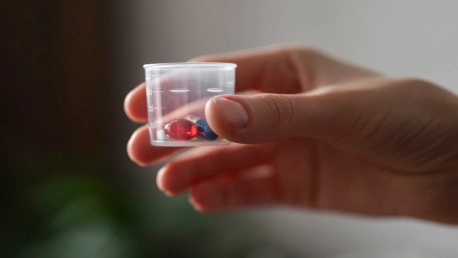In the evolving landscape of pharmaceuticals, the strategic partnership between Lantern Pharma and Oregon Therapeutics marks a significant milestone in the use of artificial intelligence (AI) for drug development. This collaboration centers on the advanced cancer drug candidate XCE853, an inhibitor with the potential to combat a range of cancers. AI, particularly with Lantern Pharma’s RADR AI platform, is poised to play a pivotal role in transforming the traditional drug development process, embodying the next frontier of precision oncology.
Unveiling XCE853: A New Hope in Cancer Treatment
XCE853 stands as a beacon of hope for patients facing some of the most daunting cancer diagnoses. As an inhibitor of protein disulfide isomerase, XCE853 has exhibited promise in preclinical studies to treat an array of cancers, including drug-resistant strains of ovarian and pancreatic cancer. Such challenging types often leave patients with few treatment options, elevating the significance of XCE853’s success. The drug’s potential extends to hematological malignancies as well as pediatric and central nervous system cancers, offering a breadth of coverage and new possibilities for those affected.
The Pioneering Collaboration: Lantern Pharma Meets Oregon Therapeutics
This collaboration unites Lantern Pharma’s AI prowess with Oregon Therapeutics’ pharmacological expertise, forging a powerful alliance with clear-cut roles. Lantern will harness the RADR AI platform to accelerate the identification of tumor-specific biomarkers and drug efficacy signatures, while Oregon will drive the pharmacological development of XCE853. Both companies share the vision of pushing the boundaries of cancer treatment, with their joint efforts marking a vital step toward realizing this drug’s full potential.
RADR AI Platform: Revolutionizing Cancer Research
The RADR AI platform is much more than just a computational tool; it’s a revolutionary force in cancer drug research. By leveraging RADR, Lantern Pharma can sift through a sea of molecular and genetic data to pinpoint biomarkers indicative of the drug’s effectiveness. These biomarkers are key to honing the precision of XCE853’s application, ensuring that it can be tailored to combat the specificities of individual cancers, thereby potentially improving outcomes and focusing on the most responsive patient populations.
Focusing on Precision: Biomarkers and Patient Selection
Identifying the right patients for clinical trials lies at the heart of precision medicine. Using RADR AI, Lantern Pharma will take on the complex task of discovering biomarkers that could be instrumental in predicting patient responses to XCE853. Targeting the right participants not only enriches the potential success of the drug but also minimizes unnecessary exposure. This focused approach could lead to more personalized therapies, ushering in a new era of cancer treatment.
The Power of Data: Pushing XCE853 Forward
The RADR AI platform thrives on data—the fuel that powers its machine learning algorithms. Boasting a repository with over 60 billion data points, the platform provides an unparalleled opportunity to understand cancer’s complexities at a molecular level. This rich data landscape available to Lantern Pharma is crucial for both validating existing hypotheses and illuminating new pathways, ultimately driving forward the development of XCE853 and its navigational course through the treacherous waters of cancer therapy.
Intellectual Property and Commercial Potential
The alliance formulated by Lantern Pharma and Oregon Therapeutics is not just scientific but also commercial. It grants Lantern co-ownership of intellectual property tied to XCE853, including new biomarkers and pharmacological insights uncovered by the RADR AI platform. Financial specifics remain undisclosed, but the structure of the deal indicates a mutual investment in the success of the drug candidate, further underscoring the commercial viability and collaborative nature of this venture.
AI-Driven Clinical Development: A New Era of Targeting Cancer
AI is set to redefine the traditional clinical development paths. Gone are the days of a one-size-fits-all approach; the deployment of AI heralds tailored trials and treatments. With the ability to connect dots between molecular characteristics and patient responses, AI facilitates a more streamlined development approach, potentially expediting the journey from laboratory bench to bedside. This partnership aims to pinpoint accurate disease indications and explore combination therapies, truly personalizing oncology care.
Synergy of Skills: Accelerating XCE853’s Journey to Market
The partnership between Lantern Pharma and Oregon Therapeutics represents a significant advancement in the use of AI for drug discovery. The alliance focuses on developing XCE853, a promising drug candidate designed to inhibit various cancers. Lantern’s advanced AI platform, RADR, is at the heart of this venture, set to revolutionize the process of drug development. By leveraging RADR’s capabilities, the partners aim to accelerate the pace and precision of bringing effective cancer treatments to market. This collaboration exemplifies the innovative integration of AI in precision oncology, where tailored treatments are developed faster and more efficiently than ever before. Lantern Pharma’s AI-driven approach could significantly cut both time and costs associated with traditional methods, marking a new era for cancer therapy development.









